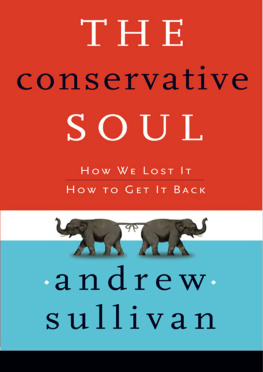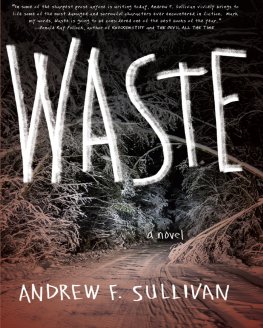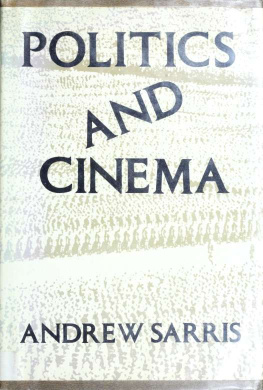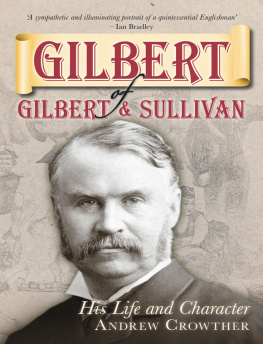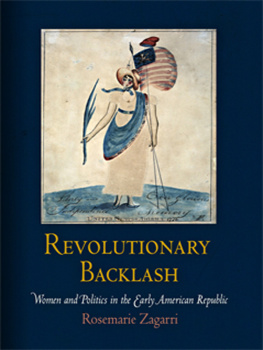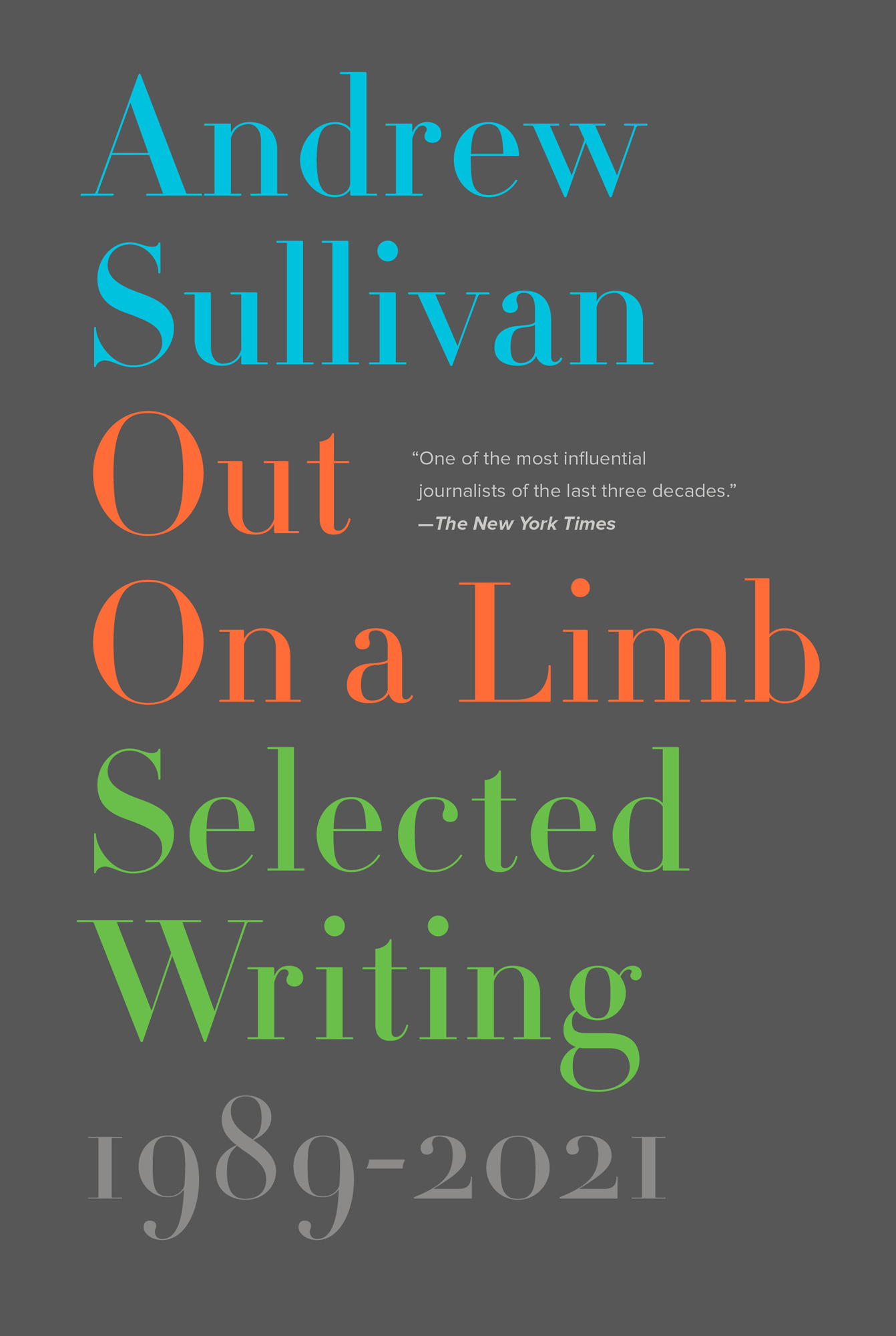Andrew Sullivan
Out on a Limb
Selected Writing, 19892021
One of the most influential journalists of the last three decades.
The New York Times
Thank you for downloading this Simon & Schuster ebook.
Get a FREE ebook when you join our mailing list. Plus, get updates on new releases, deals, recommended reads, and more from Simon & Schuster. Click below to sign up and see terms and conditions.
CLICK HERE TO SIGN UP
Already a subscriber? Provide your email again so we can register this ebook and send you more of what you like to read. You will continue to receive exclusive offers in your inbox.
To my readers
Introduction
M y first day in journalism was my last day of college. My dad picked me up in Oxford on a Sunday morning and my summer internship at the Daily Telegraph began that afternoon. In 1984, still just twenty years old, I entered the dark and vast building on the original Fleet Street, the place Evelyn Waugh had made eternal in his satirical novel about journalism, Scoop. My boss was Bill Deedes, a man widely deemed to be the model for the character, William Boot, at the center of Waughs work. But the acting editor that afternoon was a man called T. E. Utley, a renowned high Tory intellectual, who was completely blind, chain-smoked, and wore a patch over one eye, like a pirate.
Id expected some sort of orientation, filling out some forms, settling into a desk, you know, first-day bureaucracy. Instead, I was instructed to write the third of three editorials, anonymously, which gave me some relief, but quickly, which didnt. It was midafternoon, I had until 7 p.m. to finish, and I had no subject matter. It happened to be the day of an annual festival commemorating the Tolpuddle Martyrs, a group of early union organizers in 1834, who had been convicted of organizing a fraternity to resist a wage cut (and subsequently pardoned). The paper needed around six hundred words on a subject I had absolutely no knowledge of.
Good luck, dear boy, Utley declared. You can research it in the cuttings. And so I rushed into a room full of filing cabinets in which every Telegraph story had been cut out and catalogued under various subjects. Sure enough, a few articles about the history of the Tolpuddle heroes were there, and, using all the skills my Oxford training in extemporaneous bullshitting had given me, I hacked out a piece, comparing the noble objectives of early unions with the excesses of the late-twentieth-century kind. I typed it out on three pages on an electric typewriter, with blue carbon paper between them. Around 6:30 p.m., I read the editorial to Utley, who was pacing in his office, a cigarette lingering in his hands. He walked slowly from one wall until he met the other side, and then turned around and did the same again. There was a gray line of ash about three feet above the floor, permanently marking where his cigarette had grazed the wall over the years.
Fine, dear boy, he pronounced as I finished. Lets have a drink!
Over three decades later, I write for my own Substack newsletter, The Weekly Dish. I do it in silence at home on a laptop that can instantly convey my words to anyone with an internet connection in the entire world. I broadcast my own interviews; I have no editors; I can publish instantly within seconds of a news event, and have been pumping out digital journalism for two decades. Almost every aspect of my profession has been technologically revolutionized since that first day in a lost era; editors endure but with far less leverage to guide the discourse; readers respond instantly, and often venomously; countless papers have folded; a few behemoths remain; the web has become a place of riotous, ubiquitous, deafeningly democratic media. The entire world has shifted; politics and ideology have moved on; characters and personalities have died and arrived; and I, weeks after that first internship, left for America, where I have lived ever since.
The essays, reviews, columns, articles, and blog posts that appear in these pages reflect the technological, cultural, and political transformations that have taken place in the postCold War worldand, of course, chart my own evolution as a writer and thinker. They are arranged in chronological order because they form, in retrospect, a kind of political and social history, seen through the imperfect and provisional eyes of one writer. My criteria for inclusion were pieces that still might have something vivid and memorable to say, essays that captured a particular moment in time, a wide diversity of topics, and a record that helps explain the consistency of my own philosophical small-c conservatism that has guided me all this time.
I have been criticized for abandoning the right, and for criticizing the left. I have also been assailed as a defender of the right and a hater of the left. Among the political figures I have supported and voted for these past forty years: Thatcher, Major, Blair, Cameron, and Johnson in Britain; Reagan, Bush, Clinton, Dole, Bush, Kerry, Obama, Clinton, and Biden. Among the causes I have passionately supported: marriage equality, legalization of recreational drugs, the Persian Gulf War, the Iraq War, welfare reform, the candidacy and presidency of Barack Obama, and a very expansive concept of free speech. Among those causes I have furiously opposed: the US adoption of torture in the war on terror, the Iraq War, religious fundamentalism in politics, both the Republican and Democratic parties, mass immigration, deficit spending, tribalism, critical theory, and Trump.
They all reflect a singular form of conservatism that emerges from the thought of Michael Oakeshott responding to the contingent facts of unfolding history. My models for thought and writing run from Burke to Orwell. And my greatest failure of judgment, my shamefully excessive defense of the Iraq War, was, in retrospect, a moment when I abandoned that conservatism under the torrent of emotion and trauma in the wake of 9/11. I havent included that excess, of which I remain ashamed, but I have included one of many essays in which I held myself to account for the misjudgment. The one substantive change I will readily concede in my thought was a distinctive move away from American military interventionism after the Iraq debacle.
There is also a kind of history here of the biggest civil-rights shift of the last three decadesgay equality. From my first essay in defense of marriage equality, through the terrors of the AIDS epidemic, toward a new conception of the politics of homosexuality, and the end of gay culture, Ive included many of the pieces that helped shape the debate, and won the argument. There is, too, an autobiography of sorts of my Catholic faith, my attempt to reconcile it with my sexual orientation, and of an evolving and dying Christianity in the West, from the certainties of John Paul II to the mercy of Pope Francis. There is equally a story of what happened to conservatism and the right in these decadesa brutal tale of decline, decadence, and then implosion. There is a consistent and impassioned defense of liberalism and limited government against identity politics and illiberal government in all its forms.
Some of these essays caused a commotion. My early writing on gay rights inflamed conservatives, and my opposition to critical queer theory and outing incensed my fellow gays. My publishing a symposium on Charles Murray and Richard Herrnsteins book on IQ and society,


